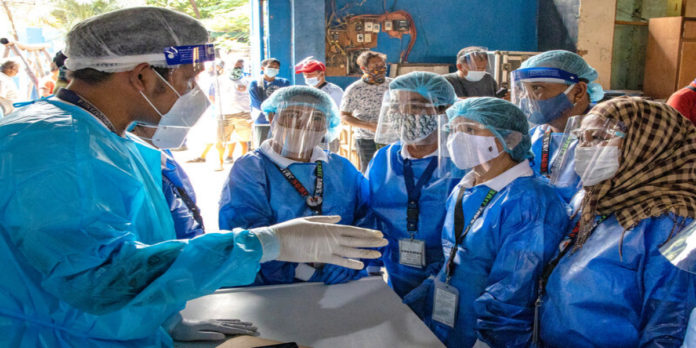KARACHI: Health equity and the use of technology are central to preventing epidemics of non-communicable diseases (NCD), stated Aga Khan University’s AKUPI-NCD project director Dr Zainab Saeed. “The epidemic of NCD presents an extraordinary crisis for the world.”
In a statement issued on Monday, she revealed that AKU will partner with Duke University to address the critical gap in the response to the NCD epidemic.
This programme, focused on cardio-cerebrovascular diseases and their shared risk factors, was awarded a research training grant by the US National Institutes of Health for $1.2 million over five years, she revealed. “This grant will be administered by the NIH’s Fogarty International Center.”
A large part of this grant will include research training that leverages digital information technology with an opportunity to work with AKU’s research incubator CITRIC’s Health Data Science Center.
“This grant brings together research and intellectual expertise from two major institutions across the world with the shared vision of enhancing research capacity to tackle non-communicable diseases in Pakistan.”
The project director, who also serves as chairperson of AKU’s Department of Medicine, added, “This can be achieved as we keep equity and data drivenness at the core of our strategy. We have designed a comprehensive, integrated, multi-disciplinary training programme to train the next generation of leaders in NCD research.”
Over three quarters of all NCD-related deaths and 82 per cent of premature NCD-related deaths occur in low and middle-income countries (LMICs) like Pakistan, where locally relevant and high-quality data was scarce.
According to the World Health Organisation, almost 50pc of deaths in Pakistan were from NCDs, creating barriers to development goals including poverty reduction, human security, economic stability and health equity. The most prevalent were cardiovascular diseases, an area this research programme will focus on.
There was a pressing need to develop a cohort of trained researchers who can contribute to the understanding of disease prevalence and risk factors as well as develop and test safe, effective, and low-cost solutions.
The training programme leverages AKU and the Institute for Global Health and Development’s extensive development network platform and infrastructure at its flagship site in Pakistan.
The aim is to build sustainable research capacity, and develop a pool of Pakistani experts in cardio-cerebrovascular disease surveillance and implementation science who will provide the leadership necessary to produce high-quality research of relevance to tackle NCDs in the country and other LMICs.
This was in line with the Fogarty International Center’s mission of supporting and facilitating global health research conducted by the US and international investigators, building partnerships between health research institutions, and training the next generation of scientists to address global health needs.
“This award is another milestone signaling the incredibly valuable collaboration between our mutual institutions. We have the opportunity to lead collaborators from Duke University to assist Dr Samad and her team to deliver on this important goal, and anticipate improved health and lives saved in the country,” said Dr Gerard Bloomfield, associate professor with tenure, Department of Medicine and the Global Health Institute at Duke University.
